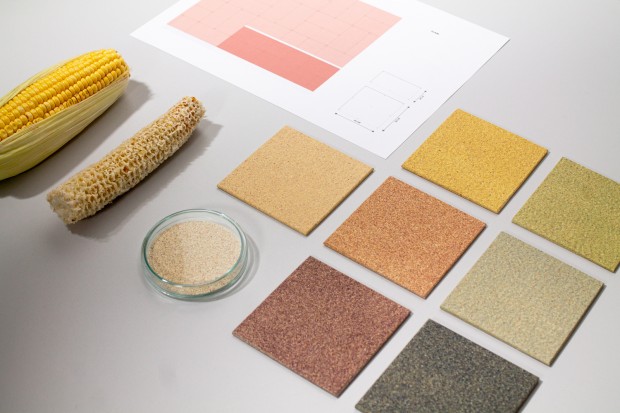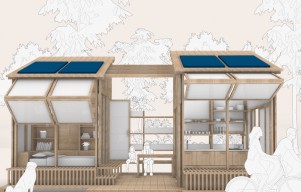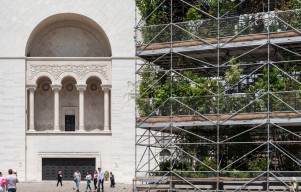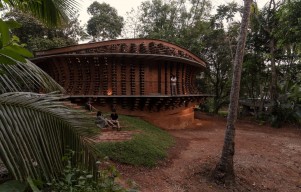
Upcycling has taken root across diverse industries, from fashion to construction, to breathe new life into discarded materials while simultaneously addressing environmental concerns. Embracing the principles of the circular economy, innovative companies are now turning to agricultural waste, such as corn cobs, rice straw, and sugar cane bagasse, to create bio-based materials that contribute to sustainable practices and minimize the ecological footprint. Among these revolutionary ventures is CornWall®, developed by StoneCycling, a pioneering material in the construction industry that transforms corn waste into a versatile and sustainable building solution.
CornWall is a testament to the shift towards a bio-based economy within the construction sector. This innovative wall-finishing material is crafted from plant biomass, primarily sourced from the cores of locally harvested corn cobs. Typically considered organic waste destined for fermentation, biomass burning, or simple disposal, these corn cobs undergo a meticulous transformation process led by StoneCycling. In an exclusive interview with Ward Massa from StoneCycling, we gained insights into the material's development and potential impact on sustainable construction.
To create CornWall, dried corn cobs undergo a thorough grinding process, resulting in primary biomass that comprises over 99.5% plant-based material. This forms the foundation of a sustainable material that can be recycled or reused for 100% of its lifespan. Ward Massa highlights the significance of this circular construction aspect, stating, "An important aspect of circular construction is disassembly, ensuring that everything can be separated and reused at the end of its useful life. That's what we do with CornWall." Adding biodegradable pigments, accounting for less than 0.5% of the mixture, introduces color to the material.
The transformation unfolds through high-pressure pressing and heat infusion, requiring temperatures up to 150 degrees Celsius. Notably, this critical stage's energy comes exclusively from solar panels adorning the production facilities' roofs. Precision cutting and a bio-based waterproof coating enhance the material's durability following pressing. CornWall® is packaged in lightweight, approximately 4 mm thick, and weighing around 5 kg per m2-optimizing transport efficiency compared to bulkier alternatives like ceramics or high-pressure laminates (HPL).
Also Read: Louis Armstrong Center: A Harmonious Ode to Jazz and Architecture

Environmental Benefits and Climate Positivity
In an industry grappling with waste production and environmental impact, CornWall emerges as a beacon of hope. Beyond its immediate applications in interior walls and furniture cladding, this bio-based material embodies the concept of being climate-positive. This means that CornWall can sequester more carbon dioxide during its growth or creation phase than it emits throughout its production, contributing to a net carbon reduction in the atmosphere. The emphasis on zero waste and total recyclability or biodegradability ensures a sustainable end-of-life cycle, setting it apart from conventional materials like HPL or ceramic tiles that contribute to high levels of waste during disposal.

Future Prospects and Customization
Looking ahead, CornWall holds vast potential beyond its current applications. Ward Massa envisions expanding its use to larger panels and potentially flooring materials while maintaining biodegradable properties for interior applications. Already available for delivery in Europe and the United States, CornWall offers technical documentation accessible through its download center. While its price aligns with high-quality ceramic tiles, the processing and end-of-life costs are significantly lower, positioning it as an economically and environmentally conscious choice.
CornWall can also be customized in color, texture, and size, allowing for tailor-made projects and advocating for personalized, sustainable solutions. Collaborations with Circular Matters and Studio Nina van Bart signify a commitment to innovation and sustainable construction, illustrating a concerted effort to redefine the future of bio-based building materials. In pursuing a more sustainable future, CornWall stands as a testament to innovation, sustainability, and bio-based materials' transformative power in shaping tomorrow's architecture.
Related Article: Advantages of Using Shipping Containers in Construction


















